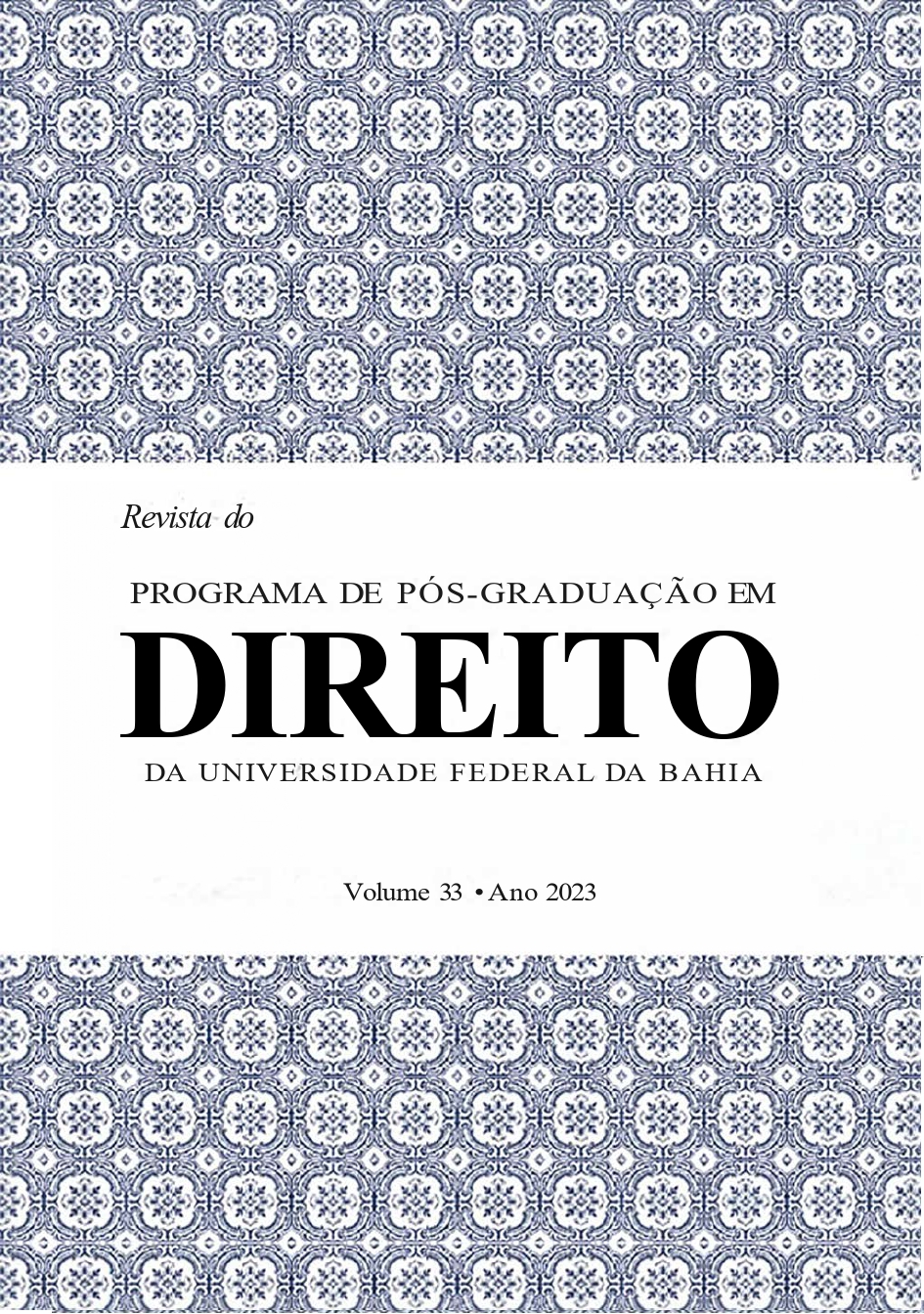A IMPROBIDADE ADMINISTRATIVA URBANÍSTICA NOS PLANOS DIRETORES E O ADVENTO DA LEI FEDERAL Nº 14.320/2021
DOI:
https://doi.org/10.9771/rppgd.v33i0.58022Palavras-chave:
Política Urbana. Plano Diretor. Improbidade Administrativa Urbanística. Nova Lei Improbidade Administrativa. Lei de Introdução às Normas do Direito Brasileiro.Resumo
O presente estudo tem como objetivo discutir como o advento da nova lei de improbidade administrativa impactou a concepção sobre o cometimento de atos ímprobos na seara urbanística no que dizem respeito aos planos diretores. O trabalho será desenvolvido mediante análise bibliográfica e documental. Nesse sentido, partindo da análise constitucional da política urbana no ordenamento jurídico brasileiro, denota-se o plano diretor como instrumento essencial à execução dos propósitos da política urbana. Ademais, são identificados os impactos angariados por alterações trazidas pela Nova Lei de Improbidade Administrativa sobre a relação entre os atos considerados contrários aos princípios básicos da administração pública e os planos diretores. E ainda, serão discutidas sob o método jurídico de Alf Ross e a interpretação realista do direito, o arcabouço normativo da Lei de Introdução às Normas do Direito Brasileiro para contribuir com a solução das situações diagnosticadas.
Downloads
Downloads
Publicado
Como Citar
Edição
Seção
Licença
Copyright (c) 2023 Revista do Programa de Pós-Graduação em Direito

Este trabalho está licenciado sob uma licença Creative Commons Attribution-NonCommercial-NoDerivatives 4.0 International License.
1. Autores mantém os direitos autorais e concedem à revista o direito de primeira publicação, com o trabalho simultaneamente licenciado sob a Licença Creative Commons Atribuição 4.0 Internacional que permite o compartilhamentodo trabalho com reconhecimento da autoria e publicação inicial nesta revista.
2. Autores têm autorização para assumir contratos adicionais separadamente, para distribuição não-exclusiva da versão do trabalho publicada nesta revista (ex.: publicar em repositório institucional ou como capítulo de livro), com reconhecimento de autoria e publicação inicial nesta revista.
3. Autores têm permissão e são estimulados a publicar e distribuir seu trabalho online (ex.: em repositórios institucionais ou na sua página pessoal) a qualquer ponto antes ou durante o processo editorial, já que isso pode gerar alterações produtivas, bem como aumentar o impacto e a citação do trabalho publicado

